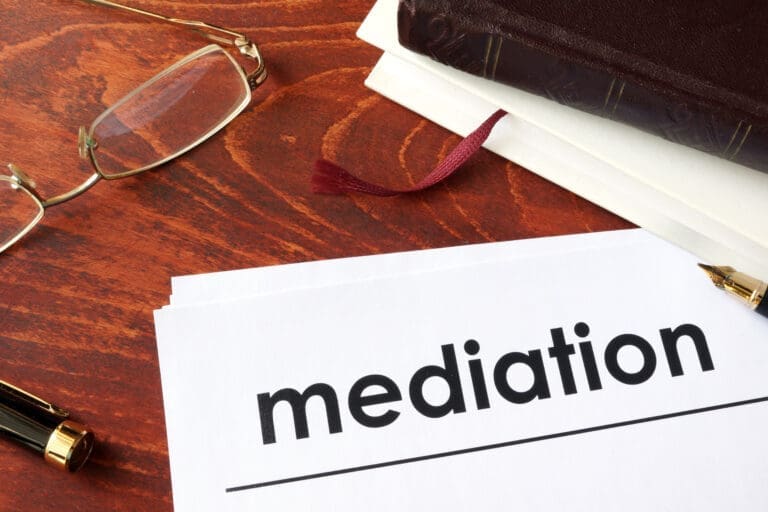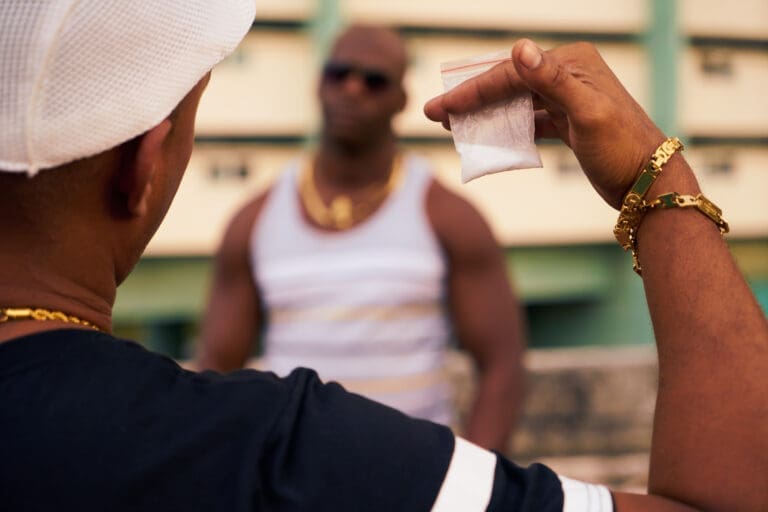
En legal outcomes of celebrity disputes often capture public attention not merely for their entertainment value, but for their significant impact on jurisprudence and legal precedent. When high-profile individuals engage in legal battles, the resulting judgments, settlements, and legal principles can reverberate throughout our legal system, influencing how similar cases are adjudicated for ordinary citizens. These cases frequently involve substantial monetary awards, novel legal theories, and intense media scrutiny that collectively shape both public perception and legal doctrine.
Celebrity legal disputes span a diverse range of legal domains, from defamation and intellectual property to personal injury and family law. The resolution of these cases—whether through jury verdicts, judicial decisions, or negotiated settlements—provides a window into how our legal system balances competing interests, interprets evolving legal standards, and allocates responsibility for alleged harms. While the parties involved may be extraordinary in their public prominence, the legal principles at stake often have ordinary applications that extend far beyond Hollywood or professional sports.
Defamation and Reputation-Based Disputes
Defamation cases involving celebrities highlight the tension between free expression and protection of reputation, often resulting in precedent-setting outcomes. The highly publicized defamation lawsuit between Johnny Depp and Amber Heard exemplifies how these disputes can result in complex, mixed verdicts with significant financial implications. After a contentious trial that captivated public attention, the jury awarded Depp $10 million in compensatory damages and $5 million in punitive damages (later reduced to $350,000 due to Virginia’s statutory cap), finding that Heard’s Washington Post op-ed references to “sexual violence” and “domestic abuse” defamed Depp with actual malice.
The Depp-Heard case also demonstrates how defamation counterclaims can succeed simultaneously, as the jury awarded Heard $2 million in compensatory damages after finding that Depp’s former lawyer Adam Waldman defamed her through statements published in the Daily Mail. This split verdict underscores the nuanced nature of defamation law, where multiple statements can be evaluated independently, and parties can be both victorious and liable within the same proceeding. The case also highlighted the role of actual malice—the legal standard requiring proof that false statements were made with knowledge of their falsity or reckless disregard for the truth—in cases involving public figures.
Celebrity defamation cases often involve substantial damage awards that reflect both the value of the celebrity’s reputation and the reach of the allegedly defamatory statements. These high-stakes outcomes can influence settlement negotiations in subsequent cases, as parties evaluate the potential financial exposure of proceeding to trial. The substantial damages awarded in the Depp-Heard case may encourage celebrities to pursue defamation claims when they believe their reputations have been wrongfully damaged, while simultaneously cautioning potential defendants about the risks of making potentially defamatory statements about public figures.
Intellectual Property Disputes
Trademark infringement and other intellectual property disputes represent another significant category of celebrity legal battles with consequential outcomes. When celebrities’ names, likenesses, or creative works are used without authorization, the resulting litigation often clarifies the boundaries of intellectual property protection in the digital age. These cases frequently involve substantial monetary damages and injunctive relief that prevent ongoing unauthorized use.
The case of Ariana Grande against Forever 21 illustrates how celebrities leverage multiple legal theories to protect their intellectual property and publicity rights. Grande’s lawsuit alleged violations under the Lanham Act (federal trademark law), the Copyright Act, and California’s right of publicity laws after the retailer allegedly used a look-alike model and references to Grande’s work in their marketing campaigns. Such multi-pronged legal approaches reflect the overlapping protections available to celebrities whose commercial value derives from their distinctive identity and creative output.
Celebrity intellectual property disputes often establish important precedents regarding the scope of protection for various aspects of a celebrity’s identity and work. These outcomes influence how businesses approach celebrity-inspired marketing, merchandise, and content creation. The threat of substantial damages and injunctive relief serves as a deterrent against unauthorized exploitation of celebrity intellectual property, while successful enforcement actions reaffirm the commercial value of celebrity endorsements and licensed uses.
Personal Injury and Tort Claims
Personal injury lawsuits involving celebrities highlight how tort law principles apply to high-profile individuals, often resulting in substantial settlements or verdicts. The ski collision case involving actress Gwyneth Paltrow demonstrates how even relatively routine personal injury claims can transform into high-stakes litigation when celebrities are involved. After a widely publicized trial, the jury found in Paltrow’s favor, rejecting plaintiff Terry Sanderson’s claim for $300,000 in damages and validating Paltrow’s counterclaim (though she sought only symbolic damages of $1 plus legal fees).
The outcomes of celebrity personal injury cases often reflect the same legal standards applied to ordinary citizens, though the financial stakes and media attention may be significantly amplified. In the Paltrow case, the jury’s determination hinged on factual findings about who caused the collision—the same central question that would be at issue in any ski accident case. This reinforces the principle that celebrities are subject to the same liability standards as non-celebrities, even if the proceedings themselves take on a more dramatic character.
Settlement remains a common outcome in celebrity personal injury cases, with many disputes resolved before trial to avoid prolonged public scrutiny. When dancer Dawn Noel Pignuola sued Britney Spears after allegedly being struck during a rehearsal, the case highlighted how even unintentional injuries in professional contexts can lead to legal liability. Though the outcome of this particular case wasn’t publicly disclosed, it exemplifies how personal injury claims against celebrities often involve allegations of negligence in professional settings where the celebrity exercises some degree of control or authority.
High-Value Divorce and Family Law Proceedings
Celebrity divorce settlements often involve extraordinary financial stakes that test the boundaries of family law principles regarding asset division, spousal support, and child custody. The divorce between Tiger Woods and Elin Nordegren reportedly resulted in a $750 million settlement, one of the largest in celebrity divorce history. Such substantial settlements reflect both the enormous wealth accumulated during high-profile marriages and the complex valuation issues that arise when dividing assets like endorsement contracts, intellectual property rights, and business interests.
The length and complexity of celebrity divorce proceedings often reflect the challenges of untangling substantial marital estates and resolving custody disputes under intense public scrutiny. The divorce between Brad Pitt and Angelina Jolie, which reportedly concluded in 2025 after an eight-year legal battle, demonstrates how high-profile divorces can involve protracted litigation over multiple issues. According to reports, the settlement included Jolie receiving approximately $80 million, with both parties waiving future spousal support claims.
Celebrity divorce outcomes often establish benchmarks for high-net-worth divorces generally, influencing settlement expectations and litigation strategies in subsequent cases. While the specific financial terms may be extraordinary, the underlying legal principles regarding equitable distribution, child support, and spousal maintenance remain consistent with those applied in non-celebrity cases. The primary distinction lies in the magnitude of the assets involved and the complexity of valuing unique income streams and business interests.
Criminal Prosecutions and Their Aftermath
Criminal cases involving celebrities illustrate how the justice system handles high-profile defendants, often with outcomes that generate significant public debate about fairness and equal treatment under the law. The 2005 trial of Michael Jackson on charges of child molestation resulted in acquittal on all counts after a lengthy trial that attracted intense media coverage. The jury’s not guilty verdict followed seven days of deliberation, with jurors citing weaknesses in the prosecution’s case, including problematic timeline evidence and credibility issues with key witnesses.
Criminal proceedings against celebrities frequently involve sophisticated defense strategies and substantial resources devoted to both legal representation and public relations. The outcomes of these cases—whether acquittal, conviction, or plea agreement—often reflect the quality of legal representation and the ability to effectively challenge the prosecution’s evidence. In Jackson’s case, the defense successfully undermined the credibility of the accusing family by presenting evidence of their history of fraud and false testimony in previous civil lawsuits.
The aftermath of celebrity criminal cases often includes civil litigation, rehabilitation of public image, and professional consequences regardless of the formal legal outcome. Even when acquitted of criminal charges, celebrities may face ongoing reputational damage and civil liability under the lower “preponderance of evidence” standard. Conversely, criminal convictions can lead to incarceration, professional sanctions, and collateral consequences that may be more severe due to the public nature of the proceedings and the celebrity’s prior status.
Sexual Harassment and Misconduct Allegations
Legal disputes involving sexual misconduct allegations against celebrities have increased significantly in recent years, resulting in varied outcomes ranging from criminal charges to civil settlements and professional consequences. The ongoing legal troubles of Sean “Diddy” Combs illustrate the potential scale of such allegations, with reports suggesting approximately 300 potential civil cases involving claims of sex trafficking and racketeering. While these cases remain pending as of early 2025, they demonstrate how allegations of sexual misconduct can multiply once initial claims become public.
The legal response to sexual misconduct allegations often involves both criminal and civil proceedings, with different standards of proof and potential outcomes. Criminal charges require proof beyond a reasonable doubt and can result in incarceration, while civil claims require only a preponderance of evidence and typically seek monetary damages. The case of Taylor Swift against DJ David Mueller exemplifies how civil litigation can provide accountability even when criminal charges aren’t pursued. Swift countersued Mueller for battery and sexual assault after he sued her for allegedly causing him to lose his job, seeking a symbolic $1 in damages. The jury found in Swift’s favor after a week-long trial, vindicating her claims of inappropriate touching during a meet-and-greet event.
The outcomes of sexual misconduct cases involving celebrities often influence broader social and legal responses to such allegations. Swift’s successful countersuit demonstrated how civil litigation can serve as a platform for asserting victims’ rights and establishing accountability, even without seeking substantial monetary damages. These cases have contributed to evolving standards regarding consent, workplace conduct, and institutional responsibility for preventing and addressing sexual misconduct.
Class Action and Mass Tort Litigation
Celebrities occasionally become involved in class action lawsuits or mass tort litigation, either as named plaintiffs representing a larger group or as defendants facing claims from multiple individuals. The potential scale of such litigation is evident in the reports of approximately 300 potential civil cases against Sean “Diddy” Combs, which could potentially be consolidated into class or mass actions depending on the similarity of the claims and procedural considerations.
Class action and mass tort outcomes involving celebrities often include substantial settlements designed to resolve all claims efficiently rather than litigating each case individually. These global settlements may include both monetary compensation and non-monetary terms such as policy changes, public apologies, or commitments to future conduct. The substantial resources typically available to celebrity defendants can facilitate comprehensive settlements that might be unattainable in cases involving less wealthy parties.
The certification of a class or coordination of mass tort claims involving celebrities presents unique challenges related to commonality, typicality, and adequacy of representation. Courts must determine whether the celebrity status of named plaintiffs or defendants creates atypical circumstances that might undermine the class action mechanism. These procedural considerations can significantly influence the ultimate outcome of the litigation, determining whether claims proceed individually or collectively.
Settlements vs. Litigation: Strategic Considerations
The decision between settlement and continued litigation represents a critical strategic choice in celebrity legal disputes, with significant implications for both legal outcomes and public perception. Settlement allows parties to avoid the uncertainty of trial, maintain greater privacy regarding the terms of resolution, and potentially preserve professional relationships and reputations. The reported settlement of Britney Spears’ legal battle with her father Jamie Spears over conservatorship issues in April 2024 exemplifies how even highly contentious family disputes can ultimately resolve through negotiated agreements.
Litigation through trial offers different advantages, including the possibility of complete vindication, establishment of legal precedent, and public affirmation of one’s position. Gwyneth Paltrow’s decision to contest the ski collision lawsuit rather than settle reflected her stated commitment to principle, as she explained after the verdict: “I felt that acquiescing to a false claim compromised my integrity.” This outcome demonstrates how litigation can provide not just legal victory but also public vindication when a celebrity believes they have been wrongfully accused.
The financial implications of settlement versus litigation extend beyond the immediate monetary terms. Protracted litigation generates substantial legal fees, opportunity costs from time devoted to the dispute, and potential reputational damage from public disclosure of unflattering evidence. Conversely, settlement may include confidentiality provisions that prevent public disclosure of damaging information, non-disparagement clauses that protect reputation, and structured payment terms that provide financial certainty. These considerations often weigh heavily in the decision-making process for celebrities and their legal teams.
Media Influence on Legal Outcomes
The pervasive media coverage of celebrity legal disputes can significantly influence both the process and outcomes of litigation through various mechanisms. Extensive publicity may affect jury selection, witness testimony, judicial decision-making, and public perception of the proceedings. The Depp-Heard defamation trial demonstrated how social media commentary and traditional news coverage can create a parallel public narrative alongside the formal legal proceedings, potentially influencing how the case is perceived by jurors and the broader public.
Media scrutiny can create both advantages and disadvantages for celebrities involved in litigation. On one hand, favorable coverage may generate public sympathy and pressure opposing parties toward settlement. On the other hand, negative publicity can damage reputation regardless of the legal outcome and potentially influence juror perceptions despite judicial instructions to avoid media exposure. The asymmetric nature of this influence—where celebrities face greater scrutiny than non-celebrity opponents—creates unique strategic challenges for legal teams representing high-profile clients.
The relationship between media coverage and legal outcomes raises important questions about fairness and due process in celebrity cases. When public opinion strongly favors one party, concerns arise about whether jurors can truly set aside preconceptions formed through media exposure. The live-streaming of the Depp-Heard trial amplified these concerns, as real-time public commentary and viral memes developed alongside the formal proceedings. This dynamic highlights the tension between the public’s interest in transparent judicial proceedings and the parties’ right to a fair determination based solely on admissible evidence.
Precedential Impact on Non-Celebrity Cases
The outcomes of celebrity legal disputes often establish precedents that influence how similar cases involving non-celebrities are resolved. When courts address novel legal questions in high-profile cases, the resulting principles become part of the jurisprudential landscape applicable to all litigants. This precedential effect means that celebrity cases can have significance far beyond their immediate parties, shaping legal doctrine in areas ranging from defamation to intellectual property.
The application of established legal principles to celebrity disputes can also clarify how these principles operate in practice. The McDonald’s hot coffee case involving Stella Liebeck, while not involving a celebrity plaintiff, became famous partly because it illustrated how product liability and negligence principles apply in seemingly routine consumer interactions. The jury’s award of $160,000 in compensatory damages (reduced from $200,000 based on comparative negligence) and $2.7 million in punitive damages demonstrated how substantial damages can result from what initially appears to be a minor incident when systematic negligence is established.
Celebrity cases often receive more thorough appellate review due to the substantial resources available to the parties, resulting in more developed legal reasoning that benefits subsequent litigants. When appellate courts issue detailed opinions in celebrity cases, these decisions provide guidance for lower courts addressing similar issues in non-celebrity contexts. This ripple effect means that the legal outcomes of celebrity disputes often have significance beyond the immediate parties, contributing to the evolution of legal doctrine across multiple practice areas.
Conclusion: The Broader Significance of Celebrity Legal Outcomes
The legal outcomes of celebrity disputes reflect both the unique circumstances of high-profile litigants and the universal principles that underpin our legal system. While celebrity cases may involve extraordinary financial stakes, intense media scrutiny, and sophisticated legal strategies, they ultimately turn on the same fundamental questions that arise in all litigation: What are the facts? What law applies? How should responsibility be allocated? The answers to these questions in celebrity contexts often provide valuable insights applicable to ordinary legal disputes.
The substantial resources devoted to celebrity litigation frequently result in thorough development of legal arguments, extensive factual records, and careful judicial consideration. These characteristics can produce well-reasoned outcomes that advance legal doctrine and clarify previously unsettled questions. From defamation standards for public figures to the scope of intellectual property protection in digital contexts, celebrity cases have contributed significantly to legal evolution across multiple practice areas.
As we continue to witness high-profile legal battles play out in courtrooms and headlines, understanding their outcomes provides more than mere entertainment—it offers a window into how our legal system functions under pressure, balances competing interests, and adapts to changing social norms. The legal outcomes of celebrity disputes, whether groundbreaking precedents or routine applications of established principles, ultimately strengthen our collective understanding of justice and its administration in both extraordinary and ordinary circumstances.
Citations:
- Fame and Felonies: Celebrity Legal Stories and Notorious Cases
- 9 Celebrities Who Have Been Sued for Personal Injury Claims
- The Top-77 Most Famous Trials in History
- Depp v. Heard: Defamation Trial Overview and Verdict
- Celebrity Trademark Infringement: Ariana Grande vs. Forever 21 Case
- Famous Personal Injury Cases That You Must Know
- Biggest Celebrity Lawsuits: Blake Lively vs Justin Baldoni and Others
- The Most Expensive Lawsuit Settlements in History
- The Rise of Celebrity Lawsuits and What We Can Learn
- Entertainment Sports Law Journal: Legal Analysis of Celebrity Cases
- Vanderbilt Journal of Entertainment & Technology Law: Celebrity Legal Issues
- Research Paper on Celebrity Legal Disputes and Outcomes
- Video Analysis of Major Celebrity Legal Battles and Outcomes
- Kesha and Dr. Luke Reach Settlement in Long-Running Legal Battle
- Celebrities Sue Over Unauthorized Use of Identity: Legal Analysis
- 9 Celebrities Who Have Been Sued for Personal Injury Claims
- Guilty or Trending: The Politics of Celebrity Lawsuits
- High-Profile Celebrity Lawsuit Disasters and Their Legal Implications
- Most Shocking Court Cases Involving Celebrities and Their Outcomes
- Celebrity Defamation Lawsuits: Major Cases and Legal Outcomes








